

July 5, 2020
When it comes to designing your dream home, comfort and elegance are a priority. The flooring you choose will set the pace for style, design, and the feel of your home. Hardwood floors are a popular choice for their appearance, luxury vinyl plank can be tailored to any lifestyle, and tile is loved for its long-term durability.
Deciding on your perfect flooring can be a daunting task. There are many materials to choose from and each type has a gamut of options to go along with it. This guide will walk you through the three most popular types of flooring materials, where they're best used and their pros and cons.
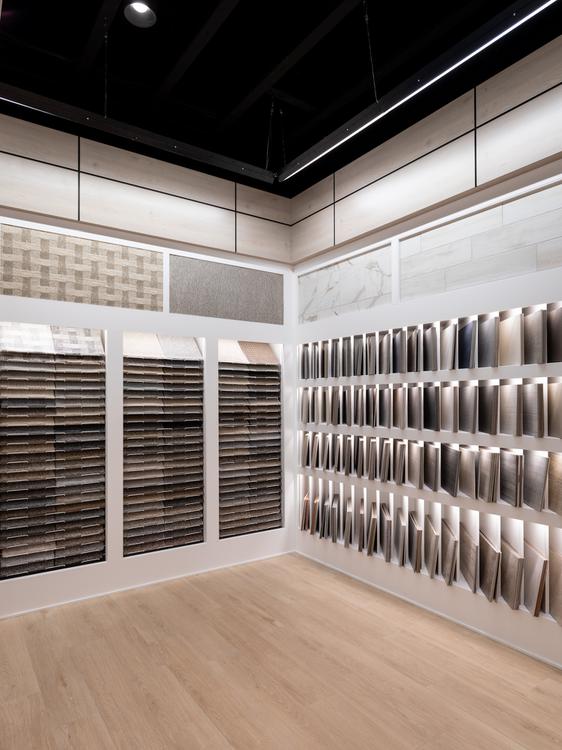
When choosing a new floor for your home, begin your decision making process by asking yourself a few key questions:
Considering the answers to the above questions will gear your thinking to more than just personal taste but also practical use. The flooring you decide on for your kitchen may be widely different from the flooring you put in your master bedroom. To aid in your decision we have compiled the top rating factors for Luxury Vinyl Plank, Tile, and Engineered Hardwood.
| Luxury Vinyl Plank | Tile | Engineered Hardwood | |
|---|---|---|---|
| Durability | Extremely durable. Resistant to scratching. Can tear or dent | Very durable | Can be scratched or chipped |
| Waterproof | Yes. | Yes. | More water resistant than hardwood flooring. |
| Cleaning | Can be wet mopped or steam mopped. No waxes. | Can be fluffy dust mopped or wet mopped. Grout may require scrubbing. | Can be cleaned with a damp mop or cloth with a cleaner designed for engineered hardwood. |
| Maintenance | Replacement planks when needed. | Replacement tiles when needed or regrouting. | Can be refinished. Can be repaired with wood putty and stain. |
| Per-Friendly | Yes. | Yes. | Yes. |
| Styles | Multiple colors, finishes, and wood species such as oak and pine. | Multiple colors, finishes, and textures. Wood-look tile is also an option. | Many colors, finishes, and wood species, including exotic hardwoods. |
| Installation | Floating floor, peel-and-stick. | Traditional installation with mortar and grout. | Floating floor, glue-down, nail-down, staples. |
| Lifespan | 5-20 Years | 75-100 Years | 20-100 Years |
| Refinishing | No. | Yes, for some products. | Yes, for some products. |
Floors impact your life more than you would think! Whether you're doing yoga in the den, hosting a dinner party in the dining room, or entertaining the neighborhood kids in your kitchen, you need a surface underfoot that's comfortable and durable. Now that you know the quick facts about each type of flooring, let's take a closer look at these top 3 flooring trends.
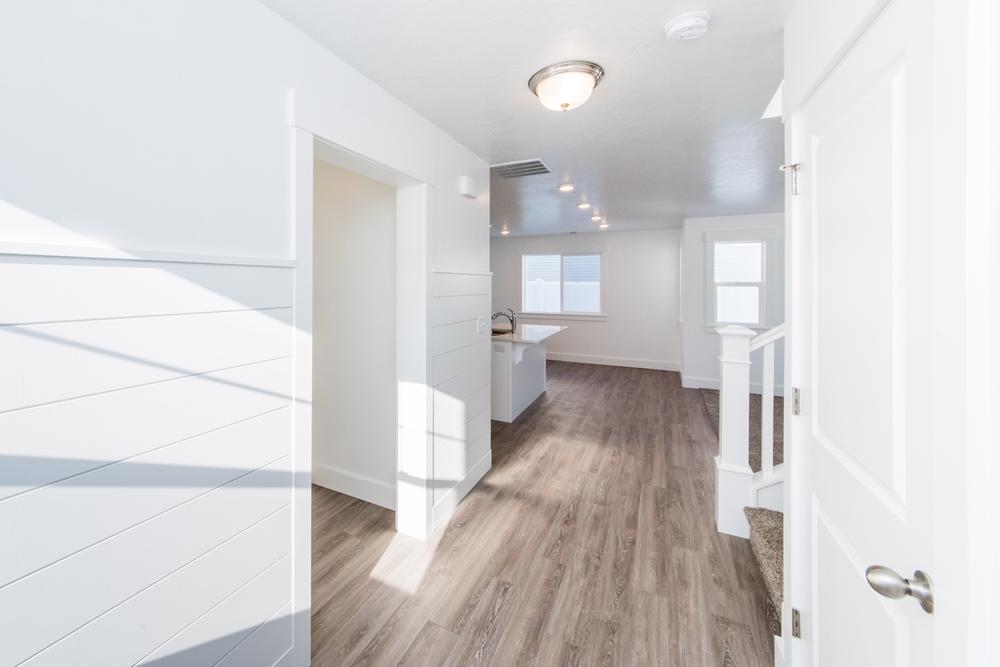
If you have been looking into floors for your home, you have probably heard about luxury vinyl plank (LVP) flooring as a fantastic new option. With the look and feel of hardwood, vinyl flooring is highly affordable when compared with most other options on the market, and new manufacturing techniques mean that it looks more authentic than ever. It is also durable, easy to install, and easy to clean and maintain. The biggest advantage of vinyl plank flooring is the fact that it is 100% water resistant.
Many households have chosen vinyl and love that it is durable and easy to maintain. Regular sweeping and weekly mopping is all you need to keep your floors looking great. Vinyl flooring can be installed on nearly any subfloor, with the thicker floors being forgiving to imperfect subfloors. Luxury vinyl plank flooring has a DIY installation with either a click lock, glue down or loose lay installation method. The affordability, durability and appearance makes vinyl plank flooring a great option for busy spaces without the price tag of real wood or tile. There is a stigma associated with vinyl flooring that many people will scoff at but don’t let that scare you off!
As with any product, there are disadvantages associated with vinyl plank flooring. If you choose to glue down your vinyl plank flooring, the removal process is known to be very difficult. If you are installing vinyl as a temporary solution, it is recommended that you avoid glue to make the removal as easy as possible. However, if you have a large, open space, a glue down vinyl will be the best for your project.
Vinyl plank flooring is very durable, however it is a softer material than most laminates, hardwoods and tiles. Vinyl flooring can be punctured easily with very sharp objects, such as dropping a kitchen knife or sliding a metal leg chair on top of the vinyl. That being said vinyl poses accessibility risks, if a member in your home requires a wheelchair, flooring that can shift isn’t recommended.
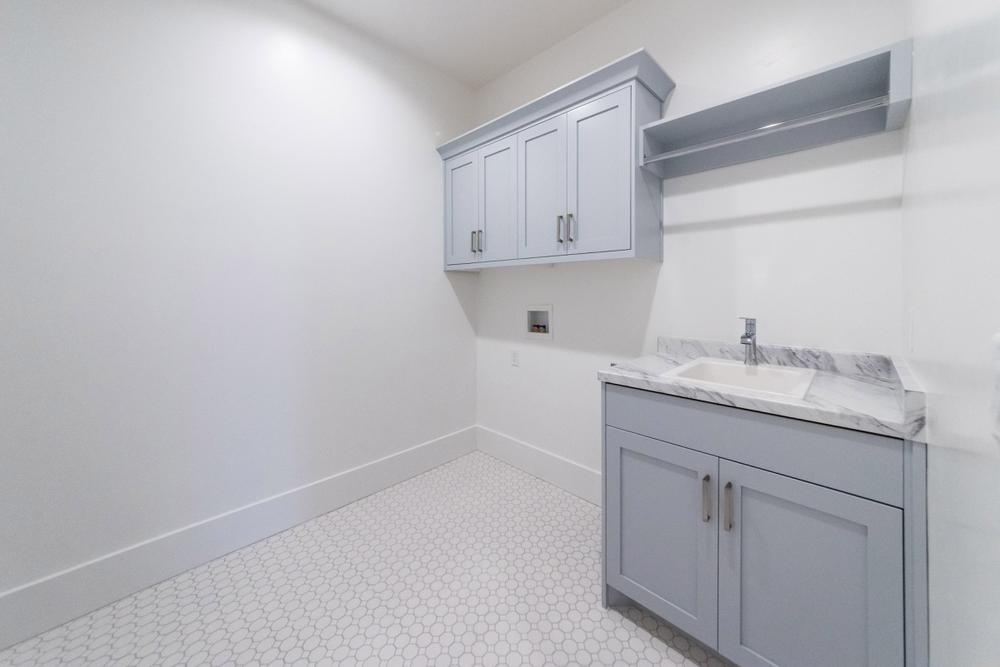
One of the characteristics that people love the most about tile flooring is just how easy it is to maintain. If any stains, dirt, or liquids get on it, they will sit on top of the material and won’t be absorbed. These factors make tile a popular option for kitchens and bathrooms but that’s not to say some don’t choose to tile their entire home. Tile flooring is tough and the tiles are hard to crack, with a quality installation and proper maintenance this flooring option will last you a very long time. Even if a tile undergoes severe impact, replacing the one tile is much easier and more affordable than redoing all of the flooring.
Tile flooring is generally affordable for most people. Most tiles will cost around $5 to $10 per square foot. The ones on the lower end will be made of cheaper material, while the more expensive ones will have higher quality materials. Tile flooring is cheaper than hardwood flooring but more expensive than carpet. However, tile flooring can add value to a property in the long run, depending on the way it is installed and how it looks.
While there are many reasons to choose tile flooring, there are also some disadvantages you should know about. Tile flooring does not absorb or hold onto heat well, which means it gets quite cold during the winter. This disadvantage turns into a benefit during the summer, cooling you, your kids, and any lazy pets off from the ground up. Tile flooring is heavy which may not be the best option for upper-story installations. It’s important to make sure your home is structurally sound to ensure tile doesn’t add any stress points to your homes integrity.
Although tile flooring is easy to clean because of its hardness, this means it is not necessarily comfortable to stand on. Resilient floors can often be softened with padded underlay, but tile flooring cannot. Area rugs can help make a space more comfortable, softer, and warmer. Lastly, the grout between tile flooring can become discolored and requires a good scrubbing to keep clean.
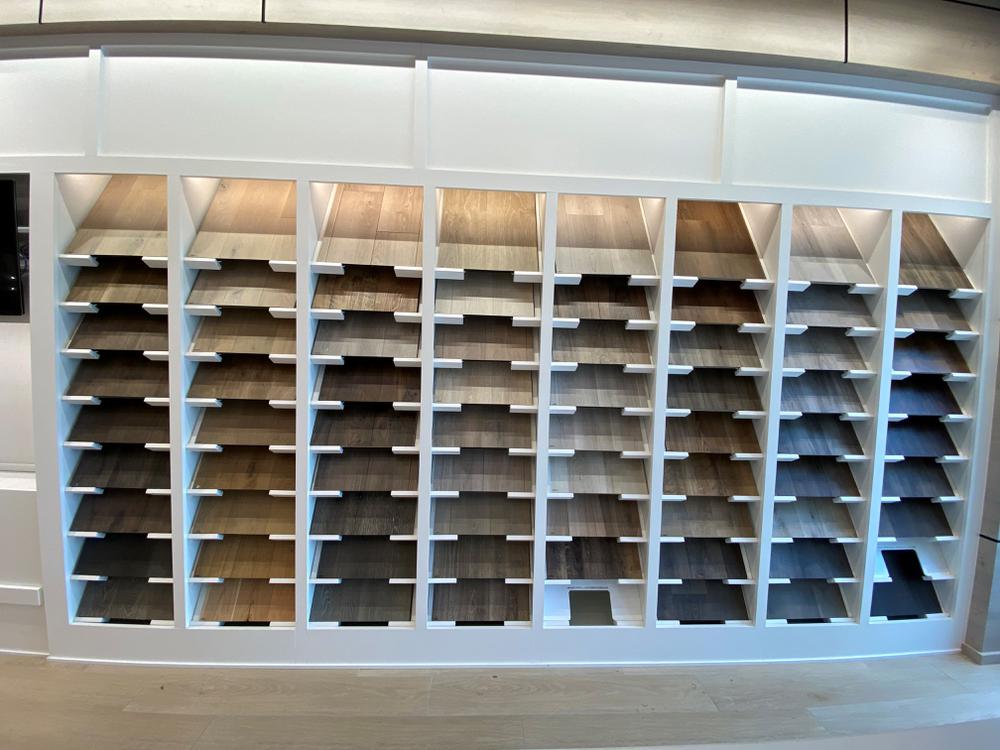
For those looking for the timelessness of wood flooring but need versatility, engineered hardwood is an excellent flooring choice. Due to its multi-layer construction, engineered wood flooring stands up to moisture and resists humidity much better than solid hardwood. Therefore, you can glue or float this product over a concrete slab. If you choose this route, be sure to waterproof the subfloor and fix any cracks before installation.
The resale market makes zero distinction between engineered hardwood and solid hardwood. So, if you’re concerned about the return on investment, don’t be! Contrary to popular myth, you can refinish engineered wood. As long as you’ve invested in a high-quality product, it won’t be a problem to sand and restain your floor. Keep in mind, unlike solid hardwood, engineered hardwood planks become less durable after two or three refinishes.
Unlike shag carpet, hardwood will never go out of style but it does have some disadvantages. Like any flooring, engineered hardwood will fade over time if exposed to sunlight and UV rays. Engineered wood needs to be treated like any hardwood floor. Use blinds and curtains to minimize the amount of direct sunlight beating down on your floor.
Unfortunately this wood flooring option is susceptible to scratches and dents. If you have pets or a fondness for heels, understand that your floors will scratch. And while some people feel these blemishes show character, others may cringe at the first site of scarring. Think you’ll save money on engineered hardwood? Not so fast. In truth, quality engineered hardwood costs about the same as solid hardwood!
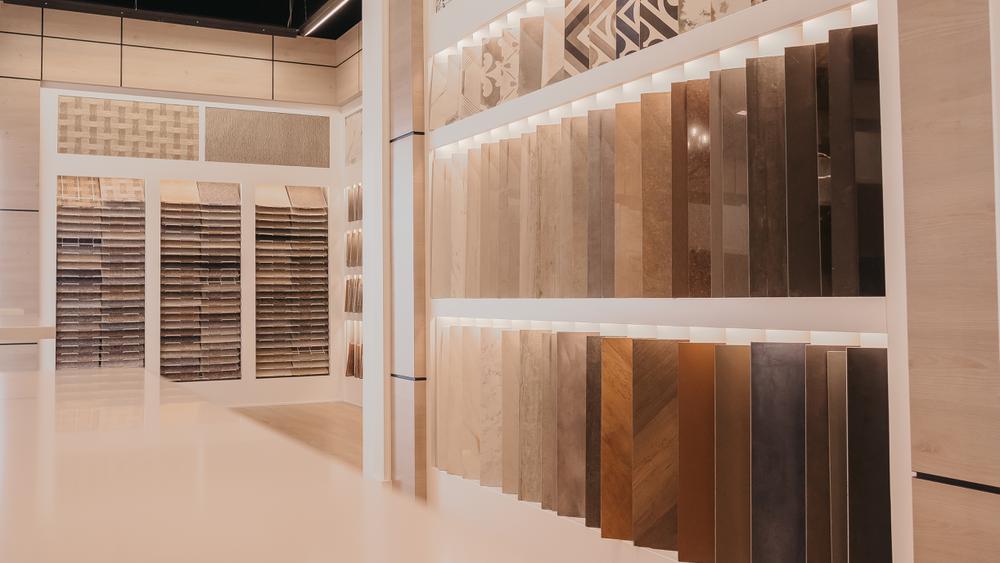
If you have additional questions, are looking for design ideas, or want to touch/feel the differences in these options don’t hesitate to give us a call! The Visionary Homes Design studio was designed with our homeowners in mind! Explore the design studio with a design consultant to get inspired with the quality of selections to create your unique home. We showcase several styles and finishes so you can see, touch, and feel our products to help you confidently visualize your home before it’s built. If you would like to learn more about our Design Studio, Visionary Homes or what we have to offer, call us at (435) 228-4702.
The post How To Pick The Perfect Flooring appeared first on Visionary Homes.